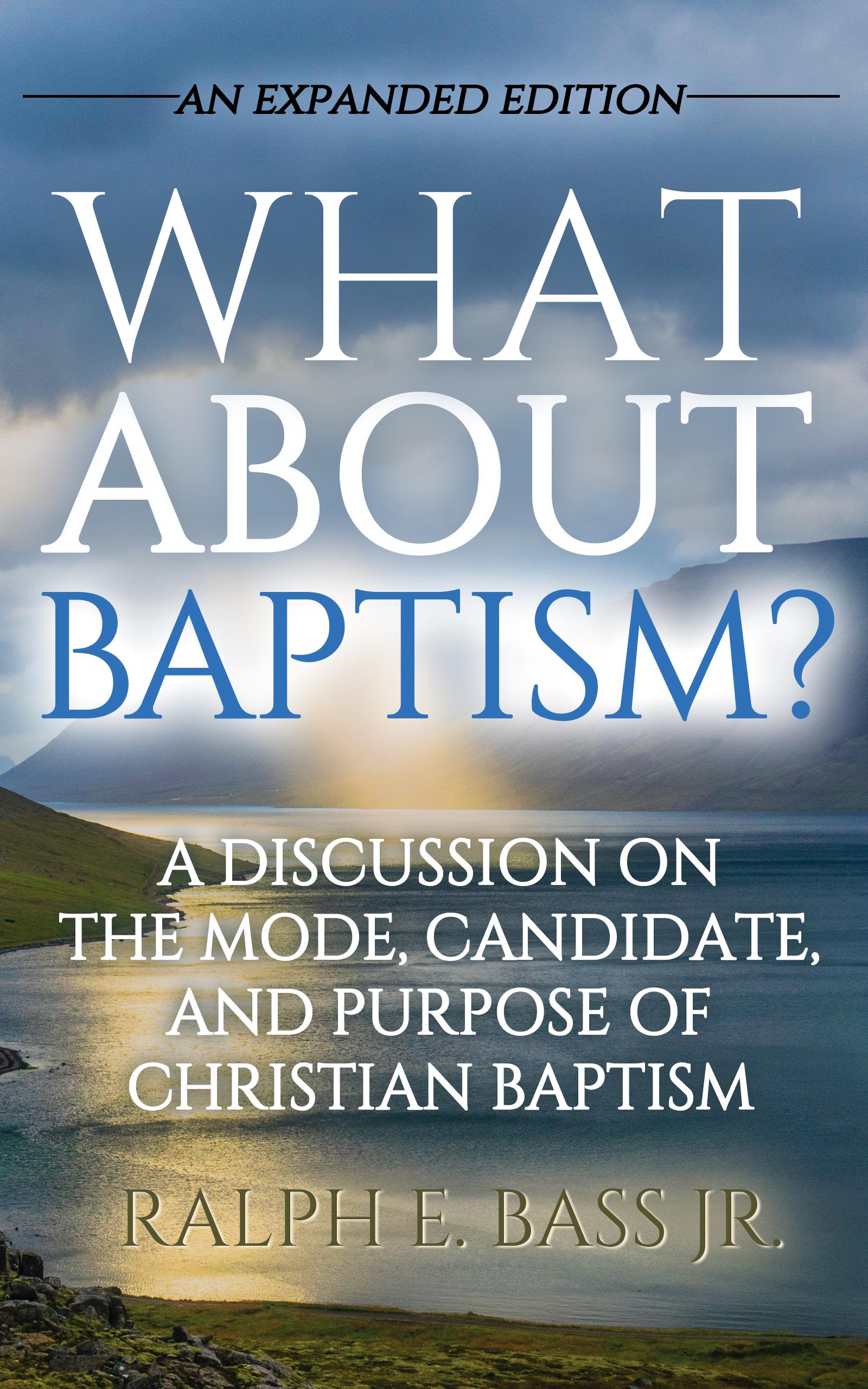
Hi, My Name Is Ralph Bass...This Is My Library


Subscribe to this Site
Introduction - Baptidzo or Bapto: What’s the Difference?
The key idea separating these two words is the length of the envelopment. If an object was quickly removed for the liquid, then the mersing or envelopment lacked adequate time to change the condition of the object. In such cases it was said that the objected was Bapto or dipped. If, on the other hand, the object was left in the enveloped condition, then the object was mersed (enveloped).
In summary, a short-term envelopment was a dipping or Bapto and a long-term envelopment was a baptism or Baptidzo.
For Baptidzo the word “immerse” is somewhat useful as well. It gives the idea that an object has been enveloped in something. The “im” part is not entirely accurate however, for the word Baptidzo does not suggest the action of placing “in” something. The Greek word emBaptidzo means just that “to envelope in.” However, that is not the word the Bible uses for Christian baptism.
Now there is another problem with “immerse” but the problem is not so much in the word as it is in our failure to understand what immerse means, and I suppose in the change of meaning that this word has experienced over the years. Literally, immerse means (or at least did mean) “to place in” or “to envelope.” What is missing with this word is the idea of removing an object from the enveloped condition. The English word “immerse” and the Greek word “Baptidzo” both mean to envelope-but neither makes provision to remove from the enveloping condition.
Let's Look Inside
the Book


In considering immersion baptism let's look at two Greek words: Bapto is characterized by the action “to put into and remove” or “to dip.” In time, it took on the secondary meaning of “to dye.” This dying was the result of the prior dipping.
Baptidzo on the other hand is characterized by the idea of “envelopment.” Baptidzo makes no provision for removal from the enveloped state. As a result, the envelopment would generate or produce a change of condition in the object enveloped. We can see this in several ancient Greek references. For instance:
In the ancient Greek world a cucumber experienced immersion baptism if it was enveloped by brine. This produced a change of condition—the cucumber was pickled.
Also, in the ancient Greek world a man who experienced immersion baptism was enveloped by water-permanently. This produced a change of condition—he was drowned.
Baptidzo on the other hand is characterized by the idea of “envelopment.” Baptidzo makes no provision for removal from the enveloped state. As a result, the envelopment would generate or produce a change of condition in the object enveloped. We can see this in several ancient Greek references. For instance:
In the ancient Greek world a cucumber experienced immersion baptism if it was enveloped by brine. This produced a change of condition—the cucumber was pickled.
Also, in the ancient Greek world a man who experienced immersion baptism was enveloped by water-permanently. This produced a change of condition—he was drowned.
That of course means that Baptidzo is incapable of expressing the idea of “to dip.” However, in popular jargon, most people think of immersion as a dipping. However, that is not the case. To be accurate in identifying the practice of the Baptists church, we need to use the word “dip.” They practice dipping; they do not practice immersion-that is because they quickly remove the person from the enveloping element. In essence, although they practice dipping they incorrectly call it an immersion.
To continue with baptidzo: in the enveloped condition, the word comes to mean “to put together so as to remain together” or “to unite.” That is what happens to the cucumber; it united with the brine to generate a changed condition in the object baptized-a pickle. It is the nature of Baptidzo to produce a change in relationship as a result of the prolonged or permanent condition of submerging.
In summary, the core meaning of the word Baptidzo is a change of condition produced by an envelopment or mersion as in immersion baptism. Baptidzo does not convey any information on the mode used to achieve the envelopment.[1] It simply tells us that there was an envelopment by some unspecified, unstated, mode or means.
To fail to understand the distinctions between bapto and baptidzo and the subtle place “result,” “relationship” or “change of condition” plays in baptidzo is to fail to grasp the critical difference in their meaning. The result of this failure will be an inability to properly grasp the separate and distinct Biblical uses of these two words. They are both found in the Bible but Bapto “to dip” is never used of a Christian baptism. Baptidzo is the only word used of baptism in Scripture and it always addresses a change in the condition of the person baptized-in the case of Christianity, from death to life or regeneration.
-----------------------------------------------------------------
[1] Dale, James W., 1) Classic Baptism, 2) Judaic Baptism, 3) Johannic Baptism, and 4) Christian Baptism and Patristic Baptism, Presbyterian and Reformed Publishing, Phillipsburg, NJ 08865.
To continue with baptidzo: in the enveloped condition, the word comes to mean “to put together so as to remain together” or “to unite.” That is what happens to the cucumber; it united with the brine to generate a changed condition in the object baptized-a pickle. It is the nature of Baptidzo to produce a change in relationship as a result of the prolonged or permanent condition of submerging.
In summary, the core meaning of the word Baptidzo is a change of condition produced by an envelopment or mersion as in immersion baptism. Baptidzo does not convey any information on the mode used to achieve the envelopment.[1] It simply tells us that there was an envelopment by some unspecified, unstated, mode or means.
To fail to understand the distinctions between bapto and baptidzo and the subtle place “result,” “relationship” or “change of condition” plays in baptidzo is to fail to grasp the critical difference in their meaning. The result of this failure will be an inability to properly grasp the separate and distinct Biblical uses of these two words. They are both found in the Bible but Bapto “to dip” is never used of a Christian baptism. Baptidzo is the only word used of baptism in Scripture and it always addresses a change in the condition of the person baptized-in the case of Christianity, from death to life or regeneration.
-----------------------------------------------------------------
[1] Dale, James W., 1) Classic Baptism, 2) Judaic Baptism, 3) Johannic Baptism, and 4) Christian Baptism and Patristic Baptism, Presbyterian and Reformed Publishing, Phillipsburg, NJ 08865.
















































































































